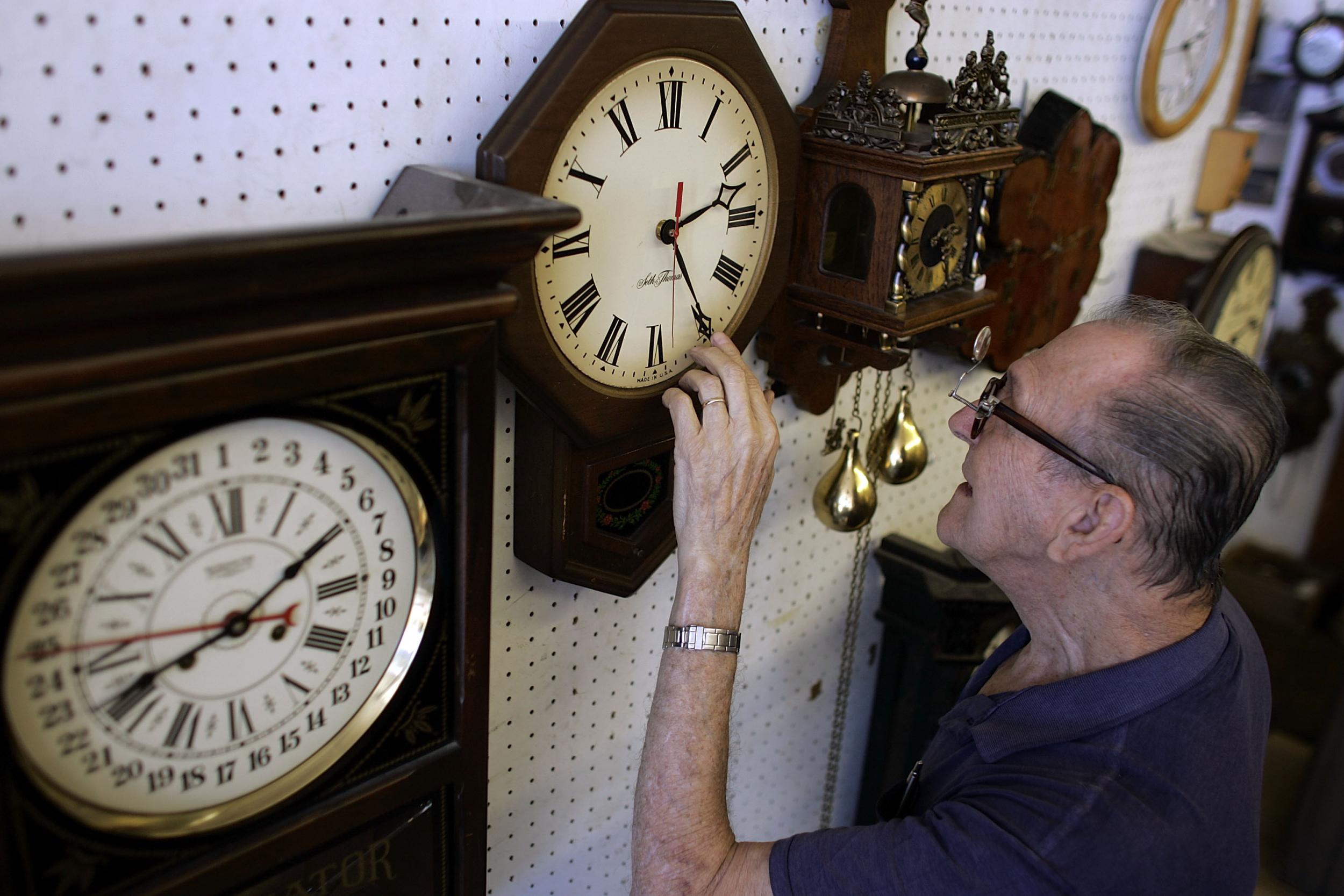When do the clocks go back in the US?
Americans are set to get an hour extra in bed on 1 November

Your support helps us to tell the story
From reproductive rights to climate change to Big Tech, The Independent is on the ground when the story is developing. Whether it's investigating the financials of Elon Musk's pro-Trump PAC or producing our latest documentary, 'The A Word', which shines a light on the American women fighting for reproductive rights, we know how important it is to parse out the facts from the messaging.
At such a critical moment in US history, we need reporters on the ground. Your donation allows us to keep sending journalists to speak to both sides of the story.
The Independent is trusted by Americans across the entire political spectrum. And unlike many other quality news outlets, we choose not to lock Americans out of our reporting and analysis with paywalls. We believe quality journalism should be available to everyone, paid for by those who can afford it.
Your support makes all the difference.Daylight Saving Time is rapidly coming to an end in America, finishing for this year at 2AM on 1 November.
The clocks falling back by an hour will push the morning forward and make darkness come quicker in the evening, and everyone will get an extra hour in bed.
Daylight Saving Time is practiced in most US states, with the exception of Arizona and Hawaii. Some US territories such as Guam and Puerto Rico also don't observe DST.
DST was first proposed in 1895, and was first implemented by Austria-Hungary in 1916.
DST means more daylight after working hours, giving people more leisure time and benefiting some businesses - however, darker mornings pose problems for those in early-rising professions such as farming.
However, there is some criticism of DST - it was initially adopted by many countries to conserve energy. Austria-Hungary were the first to implement it because they needed to save coal during wartime, but modern critics of DST say that patterns of energy consumption have changed so much that the actual amount of energy saved is neglible.
The darker mornings can also pose problems during the morning commute, making the chances of accidents more likely. What's more, it's pretty depressing going to work when it's pitch black outside.
The debate has been going on for decades, and it's likely to continue for decades more. At any rate, those who often cross the state border between Utah and Arizona will be spared some time zone confusion when DST ends.
Join our commenting forum
Join thought-provoking conversations, follow other Independent readers and see their replies
Comments